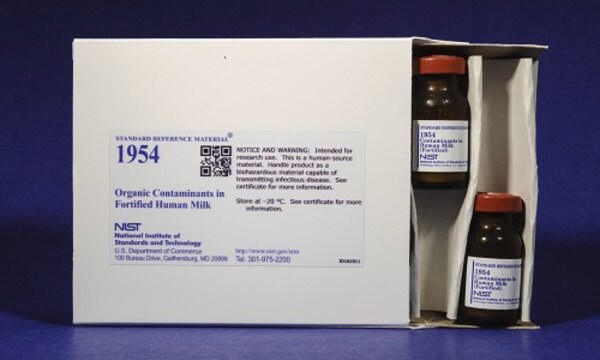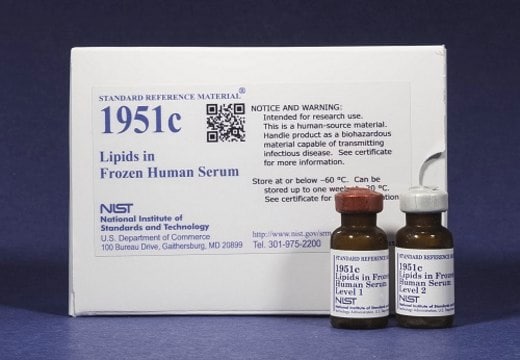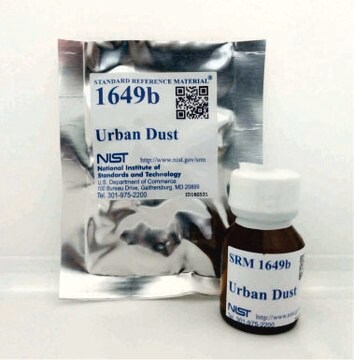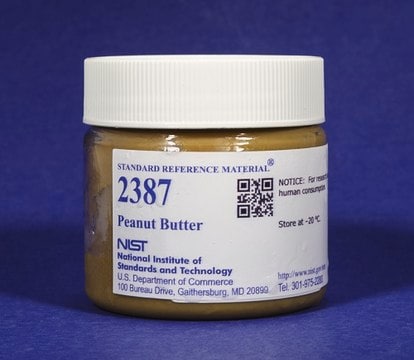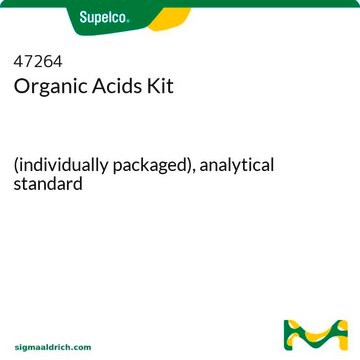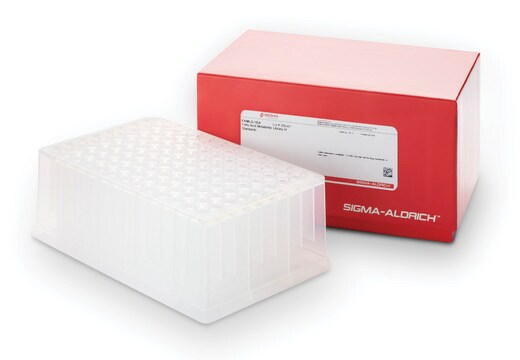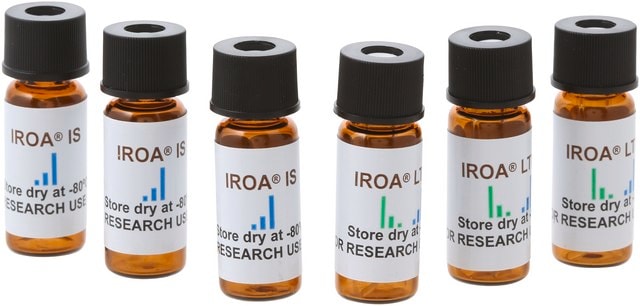NIST1950
Metabolites in human plasma
NIST® SRM® 1950
Synonym(s):
Human Plasma Metabolites
Sign Into View Organizational & Contract Pricing
All Photos(1)
About This Item
UNSPSC Code:
41116107
NACRES:
NA.24
Recommended Products
grade
certified reference material
Quality Level
form
liquid
packaging
pkg of 5 x 1 mL
manufacturer/tradename
NIST®
technique(s)
gas chromatography (GC): suitable
liquid chromatography (LC): suitable
mass spectrometry (MS): suitable
application(s)
clinical research
format
matrix material
Related Categories
General description
SRM 1950 is designed to represent “normal” human plasma.
It was developed in a collaboration between the National Institute of Standards and Technology (NIST) and the National Institutes of Health (NIH) National Institute of Diabetes and Digestive and Kidney Diseases (NIDDK). Analyses for value assignment were performed by NIST and the Centers for Disease Control and Prevention (CDC) (Atlanta, GA). All certified and reference values, with the exception of vitamin D-binding protein, are based on the agreement between the results from NIST methods and from the CDC, where available. The reference value for vitamin D-binding protein is based on the agreement between the results from a NIST method and the University of Washington method.
SRM 1950 _SDS
SRM 1950_CERT
It was developed in a collaboration between the National Institute of Standards and Technology (NIST) and the National Institutes of Health (NIH) National Institute of Diabetes and Digestive and Kidney Diseases (NIDDK). Analyses for value assignment were performed by NIST and the Centers for Disease Control and Prevention (CDC) (Atlanta, GA). All certified and reference values, with the exception of vitamin D-binding protein, are based on the agreement between the results from NIST methods and from the CDC, where available. The reference value for vitamin D-binding protein is based on the agreement between the results from a NIST method and the University of Washington method.
SRM 1950 _SDS
SRM 1950_CERT
Application
This Standard Reference Material (SRM) is intended primarily for the validation of methods for determining metabolites such as fatty acids, electrolytes, vitamins, hormones, and amino acids in human plasma and similar materials. This SRM can also be used for comparison of measurement technologies used in metabolomic studies and for quality assurance when assigning values to in-house reference materials.
The standard has been used:
The standard has been used:
- to determine the accuracy of vitamin D in human serum by liquid chromatography-tandem mass spectrometry (LC-MS/MS)
- to determine the unbound free fatty acid profile of human plasma
- to determine the C24 bile acids in human serum and urine samples by liquid chromatography-mass spectrometry (LC-MS) method
Features and Benefits
- A unit of SRM 1950 consists of five vials, each containing approximately 1.0 mL of plasma
- The associated uncertainties are expressed at the 95 %level of confidence
- Information on product description, disposal, and transportation is available in the accompanying MSDS
- The enclosed NIST certificate contains details on the expiry date, warning to users, instructions for right storage and use, preparation, and analysis of the RM
Legal Information
NIST is a registered trademark of National Institute of Standards and Technology
SRM is a registered trademark of National Institute of Standards and Technology
related product
Product No.
Description
Pricing
Storage Class
13 - Non Combustible Solids
wgk_germany
WGK 3
Choose from one of the most recent versions:
Certificates of Analysis (COA)
Lot/Batch Number
It looks like we've run into a problem, but you can still download Certificates of Analysis from our Documents section.
If you need assistance, please contact Customer Support.
Already Own This Product?
Find documentation for the products that you have recently purchased in the Document Library.
Customers Also Viewed
Analysis of human C24 bile acids metabolome in serum and urine based on enzyme digestion of conjugated bile acids and LC-MS determination of unconjugated bile acids
Zhu P, et al.
Analytical and Bioanalytical Chemistry, 410(21), 5287-5300 (2018)
Quantification of vitamin D and 25-hydroxyvitamin D in soft tissues by liquid chromatography-tandem mass spectrometry
Lipkie TE, et al.
Journal of Chromatography. B, Biomedical Sciences and Applications, 932, 6-11 (2013)
Unbound free fatty acid profiles in human plasma and the unexpected absence of unbound palmitoleate
Huber AH and Kleinfeld AM
Journal of Lipid Research, 58(3), 578-585 (2017)
Our team of scientists has experience in all areas of research including Life Science, Material Science, Chemical Synthesis, Chromatography, Analytical and many others.
Contact Technical Service


